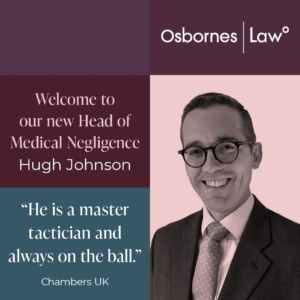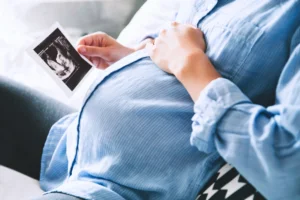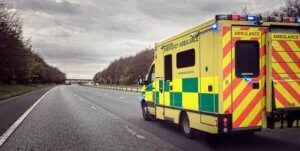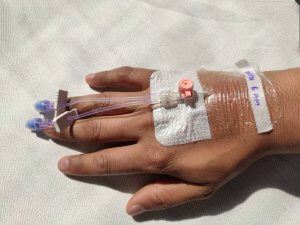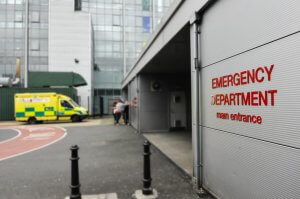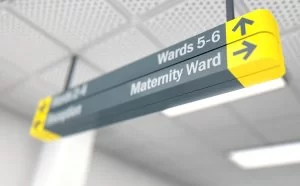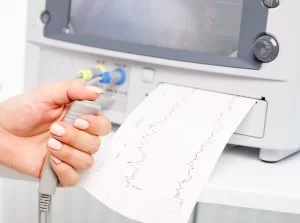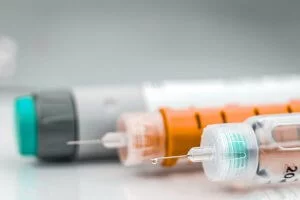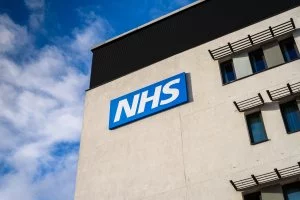What is the Healthcare Safety Investigation Branch?

Contact
Table of Contents
The Healthcare Safety Investigation Branch (HSIB)
The HSIB (Healthcare Safety Investigation Branch) is an independent organisation comprising a team of investigators and analysts whose role is to conduct independent investigations of ‘patient safety concerns in NHS –funded care across England.’ The HSIB can only investigate patient safety concerns that happened after 1 April 2017.
The organisation is completely independent from the NHS insofar as their investigations are concerned. However, they are funded by the Department of Health and Social Care and hosted by NHS England and NHS Improvement.
The Government published a draft Health Service Safety Investigations Bill in September 2017 to recommend setting up a new body, the Health Service Safety Investigations Body (HSSIB) again to investigate any incident relating to patient safety in the NHS. The idea is that the HSSIB will be completely independent and will continue the work of the HSIB save for maternity investigations.
The proposed Bill will:
- Establish the Health Service Safety Investigations Body (HSSIB), as a new independent arm’s-length body with powers to conduct investigations into patient safety incidents that occur during the provision of NHS-funded services;
- Create a ‘safe space’ whereby participants can provide information to the HSSIB in the knowledge the information will not be shared with others, and only disclosed under certain limited circumstances as set out in legislation; and
- Amend the Coroners and Justice Act 2009 to allow for NHS bodies, rather than local authorities, to appoint Medical Examiners; and place a duty on the Secretary of State to ensure enough Medical Examiners are appointed for England, are properly resourced and their performance monitored.
Who are the Healthcare Safety Investigation Branch (HSIB)?
Keith Conradi leads the team of investigators and analysts. He is the Chief Investigator with a plethora of experience in air accidents and a professional pilot for 40 years. Other members of his team are Dr Kevin Stewart, the Executive Medical Director and Deputy Chief Investigator. He is a qualified Geriatrician; Lynne Spencer, Executive Director of Corporate Services who has worked in the NHS for 18 or so years in a corporate governance /risk management role and Dr Stephen Drage, the Executive Director of Investigations having previously worked as Deputy Medical Director at a large NHS Trust and still practising as an Intensive Care Consultant and Anaesthetist.
There are also sub groups of teams such as:
- Intelligence Unit which is made up of 5 individuals who prioritise HSIB actions; manage the external Safety Awareness Notification System; manage the database of intelligence and expert advice.
- National Investigation Team who are the core of the HSIB and oversee the investigations. The team is made up of a group of individuals with a wealth of experience in project management; serious case reviews; multi-agency investigations; management within the NHS; safety management; accident investigation; nursing; law; medicine and patient safety.
- Maternity Investigation Team who are a team of obstetricians and midwives whose role is to investigate all maternity incidents with the NHS.
- Senior Management Team who deal with issues pertaining to information management & technology; finance & performance; data compliance & information governance; communication; education, learning & development; policy, patient & public involvement etc.
- Citizens’ Partnership and Delivery Group are a diverse mix of individuals who are internal and external members of the HSIB. They share their experiences and expertise in patient and public involvement to assist and raise the profile of the HSIB. Some of these individuals have experienced substandard NHS care or lost a family member due to poor NHS care.
What do the HSIB do?
The crux of the reports prepared by the HSIB teams is to investigate any patient safety concern within the NHS.
The two main programmes are the National investigations and the Maternity investigations. Anyone can report a patient safety concern to the HSIB. Patients can make referrals; their family; NHS staff (and organisations) and the public
What is the purpose of an HSIB investigation?
The HSIB investigation’s main purpose is to thoroughly investigate the circumstances pertaining to the patient safety issue and prepare a report.
The HSIB will not seek to investigate issues relating to blame or breaches of duty of care. It is not a legal investigation, however the final report is useful to you medical negligence lawyer.
The HSIB will involve the NHS Trust/healthcare professionals involved in the care; the patient and the family in the reporting process and all national investigations are published once the report is finalised.
Maternity investigations are not published but are shared with the family, NHS Trust and healthcare professionals who were involved with the patient safety incident in question.
The HSIB collates information from their investigations to identify themes with patient safety. Once they have completed a number of investigations relating to a particular NHS Trust they we hold a workshop with the NHS Trust concerned and this enables them to:
- Minimise duplication and workload;
- Develop feedback on common issues;
- Raise actions that require immediate review to improve safety, in a quicker timeframe than waiting for our investigation reports to be completed.
Insofar as maternity investigations are concerned the HSIB have an agreement with the CQC in respect of sharing information relating to investigations. They also work closely with The Royal College of Obstetricians & Gynaecologists Each Baby Counts quality improvement programme and MBRRACE-UK (Mothers and Babies: Reducing Risks through Audits and Confidential Enquiries across the UK) and NHS Resolution.
How many HSIB investigations take place each year?
The HSIB carry out up to 30 investigations a year in relation to their National investigations and shockingly, as of December 2020, 1000 investigations a year in relation to their Maternity investigations. As at August 2020 there were 1,478 Maternity investigations commenced and 1083 concluded, working with 130 acute NHS Trusts in 14 regions of the UK including 10 NHS Ambulance Trusts. Not all families wish to engage with the HSIB and statistics reveal that 87% of families engaged in the Maternity investigations and slightly more at 89% engaged in the National investigation.
How will your medical negligence lawyer use an HSIB report?
At Osbornes law, our clinical negligence lawyers receive many HSIB reports. The information in these reports when collated with the information contained within the patient’s medical records and any other investigation reports is helpful in building the case. It does not replace any expert evidence that is required to prove a claim; or indeed the patient’s version of events. It is merely information that can be used in addition to other evidence.
Our lawyers specialise in maternity medical negligence claims and we have used HSIB reports when medical negligence has caused child injuries during birth, including cases of stillbirth claims and cerebral palsy claims. In the case of Gabriela Pintilie, where mistreatment tragically led to the death of a mother after giving birth, an HSIB investigation was carried out and the report formed part of our evidence against the NHS trust.
In view of the fact that many of our clients do not speak English as their first language and many are unable to understand what happened at the time of the incident in question, the HSIB are amenable to translating the HSIB reports into the client’s language so that they can fully understand the contents of the report. This is really helpful and our foreign language speaking legal team can go through these reports with the client in detail to ensure that they fully understand the content.
If you believe that a patient safety matter should be reported to the HISB or you would like to speak to a solicitor regarding any patient safety concerns, don’t hesitate to get in touch with Stephanie Prior. Stephanie is head of Clinical Negligence at Osbornes. She is ranked as a leading medical negligence lawyer in London and is also accredited by AvMA, the leading charity championing patient safety.
Share this article
“Osbornes handles a wide range of high-value and complex clinical negligence cases, with particular expertise in birth injury, delayed cancer diagnosis, spinal injury, and fatal claims.”
“Osbornes Law is an established firm which handles a breadth of complex and high-value clinical negligence matters.”
"She has represented victims in a number of high-profile cases."
"Stephanie shows sensitivity and deals with things in an understanding way."
Insights from Medical NegligenceVIEW ALL
- 30.10.2025
Addenbrooke’s Hospital Complaints
Review finds harm to children by surgeon at Addenbrooke’s Hospital An independent review by Cambridge University Hospitals NHS Foundation...
Read more - 1.10.2025
Jess’s Rule Rolled Out in England to...
Jess’s Rule establishes a “three strikes and rethink” approach for GP practices to prevent avoidable missed diagnoses deaths. The...
Read more - 2.9.2025
New Medical Negligence Head for Osbornes to Spearhead...
Hugh Johnson joins Osbornes Law to lead the firm’s medical negligence team Hugh Johnson has been appointed as new...
Read more - 27.8.2025
HSSIB Review Exposes NHS Maternity Failures
Patient safety body HSSIB publishes exploratory review of maternity and neonatal services As Head of Paediatric and Birth Negligence cases...
Read more - 12.5.2025
Complaints Against Suspended Surgeon Ms Kuldeep Stohr
Ms Kuldeep Stohr, orthopaedic surgeon at Addenbrooke’s Hospital suspended In February 2025, Cambridge University Hospitals NHS Foundation Trust (CUH) confirmed...
Read more - 4.4.2025
Time To Move On From Physician Associates?
BMA raises concerns over patient safety: the risks of Physician and Anaesthesia Associates in the NHS The British Medical Association (...
Read more - 19.9.2024
Report highlights failings in maternity care
The Care Quality Commission (CQC) has recently carried out a national review of 131 maternity inspections between 2022 and 2024, finding that failures...
Read more - 30.7.2024
What Is the Role Of a Physician Associate?
What does the Position of Physician Associate Mean for the NHS? There are many different jobs within the NHS, each...
Read more - 11.1.2024
New UK Supreme Court Ruling regarding Secondary Victims...
The Supreme Court has today, on the 11th January 2024, upheld the Court of Appeal’s order to dismiss the claims...
Read more - 11.1.2024
Secondary Victim Claims
Secondary victims in clinical negligence cases What is a secondary victim in clinical negligence cases? Most compensation claims are concerned...
Read more - 12.12.2023
NHS Compensation Payouts Guide
What Are NHS Compensation Payouts? In the UK, the National Health Service delivers the vast majority of healthcare services. When...
Read more - 31.8.2023
Can you sue the NHS for waiting times?
The NHS is facing an unprecedented challenge with 7.47 million people waiting for routine treatments. This crisis impacts everyone, from those...
Read more - 31.8.2023
Hyponatraemia – Symptoms, Causes & Negligence
What is hyponatraemia? Hyponatraemia is a condition where sodium levels fall below a certain level, which can be dangerous. All...
Read more - 10.8.2023
Ambulance Delays Affecting Rapid Patient Treatment
Failure to Meet Ambulance Response Targets In 2017, the Secretary of State for Health accepted the new ambulance performance standards recommended...
Read more - 9.6.2023
Early Notification Scheme – is it helping or failing...
What is the Early Notification Scheme? The NHS Early Notification Scheme (“ENS”) has reached its sixth anniversary. Established in April 2017,...
Read more - 23.3.2023
Private Pregnancy Scans and Substandard Care
In the news, it has been reported that private clinics that offer pregnancy scans to women are not meeting the...
Read more - 14.2.2023
Iron Infusion Injury Claims
The risk of extravasation injuries during iron infusion therapy Iron infusions, such as Ferinject, are often recommended for patients with...
Read more - 9.11.2022
Delayed transfer to Accident & Emergency causing harm
The Healthcare Safety Investigation Branch (HSIB) has identified that patients may come at risk of harm whilst waiting in ambulances...
Read more - 9.11.2022
Breast cancer screening mammograms and negligence
Breast cancer screening has improved significantly in the UK due to research bettering the understanding of this terrible disease, which...
Read more - 21.9.2022
Are maternity services safe? – Part 2
In April last year I wrote a piece about government setting up a taskforce to look into why there are...
Read more - 8.9.2022
Poor interpretation of CTG can result in stillbirth...
Poor interpretation of a Cardiotocograph, more commonly known as a CTG, is a leading cause of stillbirth and brain injuries...
Read more - 14.7.2022
Insulin overdose in hospitals due to limited staff...
A century ago, insulin was first used to treat a 14-year-old boy dying of type 1 diabetes. A hundred years later,...
Read more - 6.7.2022
NHS aims to reduce waiting times with Elective...
The NHS recently recorded their waiting list to be at 6.5 million, a record high. Much of this backlog is due...
Read more - 29.6.2022
Nottingham Maternity: Donna Ockenden to Chair Independent Inquiry
An interim report on the state of maternity services at Nottingham University Hospitals NHS Trust has just been released. However,...
Read more





